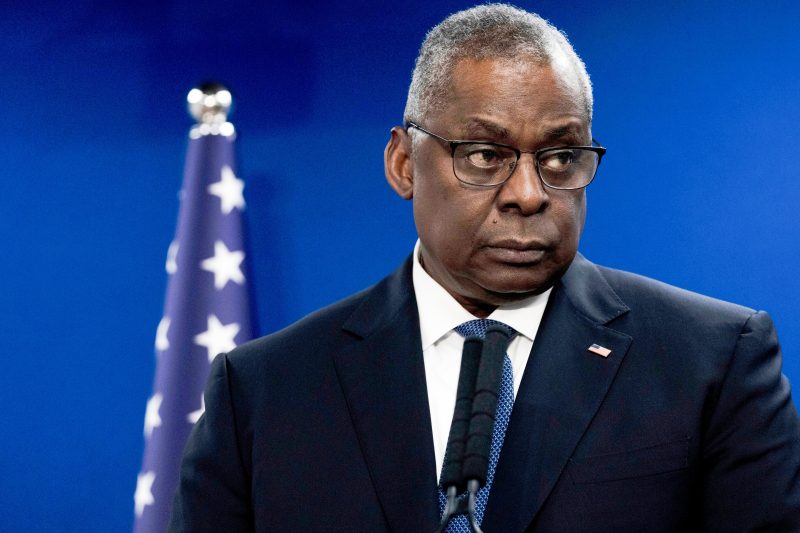Lazarus Group Targets LinkedIn Users, Impersonates Fenbushi Capital Executive: SlowMist
Pentagon frustrated by lack of notice from Israel in Syria strike


Senior Pentagon officials were frustrated that Israel did not notify the United States before conducting a strike on an Iranian site in Syria this month, an escalation that they assess increases risks to American forces in the Middle East, U.S. officials said.
Iran has vowed retaliation for the April 1 strike on a building adjacent to its embassy in the Syrian capital, Damascus, which killed two senior commanders from the Islamic Revolutionary Guard Corps, an organization with a long history of supporting violent attacks against Israel and the United States. U.S. and Israeli officials are closely coordinating how they may respond to an Iranian counterstrike, officials said, with a top American general visiting Israel on Thursday.
Three U.S. officials, who spoke on the condition of anonymity to discuss security matters, said Defense Secretary Lloyd Austin and other senior defense officials believed Israel should have informed them ahead of time because of the strike’s implications for U.S. troops and interests in the region. Knowing in advance would have permitted the Pentagon to heighten defenses for U.S. personnel and to position assets, including warships with missile defense systems on board, in a way that could help protect both Israel and U.S. troops from a potential Iranian response.
Austin complained directly to his Israeli counterpart, Defense Minister Yoav Gallant, during a call on April 3, one of the U.S. officials said. A Pentagon readout of the conversation did not disclose that detail, saying only that Austin “reiterated U.S. support for Israel’s defense against a range of regional threats.”
The Israeli Embassy in Washington did not immediately provide comment on the exchange.
The episode adds to already superheated tensions between Washington and its closest Middle Eastern ally over Israel’s campaign against Hamas militants in the Gaza Strip, and highlights a communications gap. U.S. officials have ramped up their criticisms of Prime Minister Benjamin Netanyahu’s handling of the war, and what they say is Israel’s failure to protect civilians and ensure Gazans have access to adequate food, water and medical care.
Aid officials say hunger and disease are mounting in the densely populated Gaza Strip, where Palestinian officials cite a death toll of more than 30,000 people in six months of Israeli military operations. Israel launched its effort to destroy Hamas there in the wake of the group’s Oct. 7 attack into Israel, which killed 1,200 people and resulted in the kidnapping of more than 250 others.
President Biden, facing increasing pressure from Democrats and global allies over U.S. support for Israel’s Gaza campaign, has threatened to alter his administration’s policy toward Israel unless Netanyahu’s government demonstrably improves conditions for civilians and ensures a planned offensive in southern Gaza doesn’t make things worse.
U.S. officials say no decisions have been made about what changes could result if Israel fails to heed their admonitions, including whether the administration might impose conditions on U.S. military aid. But they say that Israeli leaders are acutely aware that public opinion, worldwide and in the United States, is shifting against its campaign.
The Biden administration immediately distanced itself from the strike on the Iranian compound in Damascus, which Tehran said was especially egregious because it hit a diplomatic facility. Israel has not claimed responsibility for the attack.
And although U.S. officials have openly discussed their displeasure with the Israeli government’s management of the war in Gaza, they say the United States will stand by the Jewish state and help it defend itself.
Gen. Michael “Erik” Kurilla, the head of U.S. Central Command, was in Israel on Thursday, said Maj. Gen. Patrick Ryder, a Pentagon spokesman. The U.S. commitment to Israel’s security against threats from Iran and its proxies, he added, is “ironclad, and I’ll just leave it there.”
Israel has taken steps that suggest it is preparing for Iran’s response, including halting leave for reservists and reinforcing air defense units.
Gallant wrote on social media Thursday that he had talked again with Austin and “detailed Israel’s readiness and preparations to defend our citizens.” Israel, Gallant said, “will not tolerate an Iranian attack on its territory. A direct Iranian attack would require an appropriate Israeli response against Iran.”
The Pentagon readout of their call said that Austin conveyed to Gallant that “that Israel could count on full U.S. support to defend Israel against Iranian attacks.”
Those killed in the Damascus strike included Mohammad Reza Zahedi, who has been described as a key figure in Iran’s activities in Lebanon and Syria. The attack marked a significant step up from the volley of strikes that Israel and Lebanese Hezbollah, the most powerful of a network of Iranian-backed militia groups across the region, have exchanged since Oct. 7.
U.N. Secretary General António Guterres condemned the strike, citing “the inviolability of diplomatic and consular premises.” Supreme Leader Ayatollah Ali Khamenei vowed that his country would make Israel “regretful about the crime and similar acts.”
American officials feared the Damascus strike might reignite attacks by Iranian proxies on U.S. military personnel in Iraq, Syria or elsewhere in the Middle East, and upset their goal of ensuring that the drumbeat of Israeli-Hezbollah skirmishes, and attacks by other Iranian proxies such as Yemen’s Houthi rebels, don’t tip the region into full-fledged conflagration.
U.S. officials hope to maintain the uneasy detente that took hold with militias in Iraq and Syria following the Pentagon’s targeting of a senior militia operative in Baghdad and a wave of airstrikes on other sites in Iraq and Syria that U.S. officials said were used by Iranian forces and affiliates. The strikes came after a drone assault that killed three U.S. service members at a base in Jordan.
While Iran has said it holds the United States responsible for Israeli actions, including the strike on its facility in Damascus, it is not clear whether Tehran would attempt to take action against the United States directly in response, or focus solely on Israel.
In 2020, following an American drone strike that killed influential Iranian military leader Qasem Soleimani, Tehran launched ballistic missiles at a base in western Iraq housing U.S. forces. No one was killed, but more than 100 suffered traumatic brain injuries.
The Pentagon expanded its presence in the Middle East after the Oct. 7 attacks, including taking the unusual step of temporarily positioning two aircraft carriers in the region and dispatching ships from an amphibious ready group off Israel.











